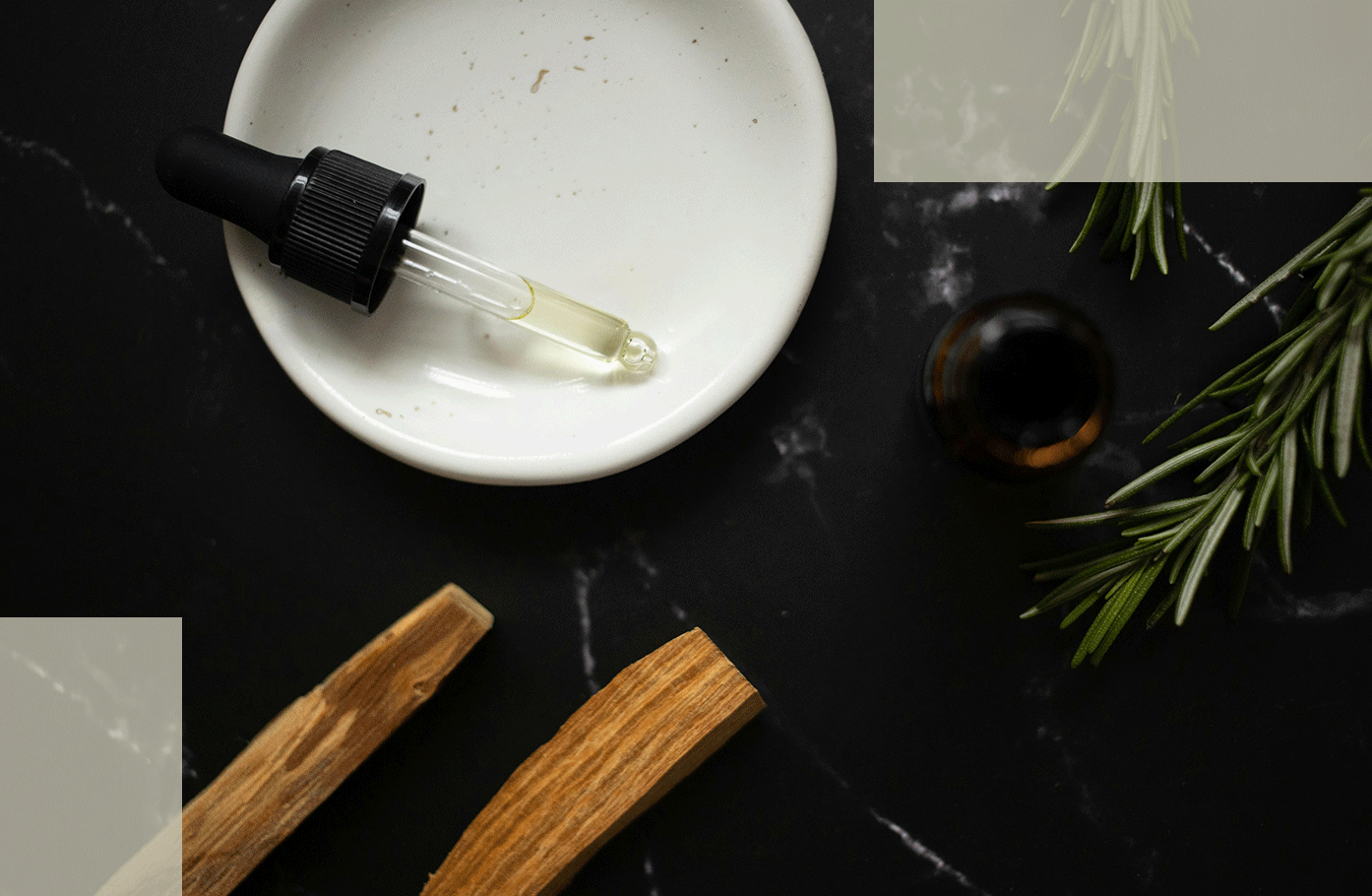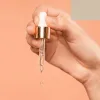
Why Do People Believe in Rosemary Water?
The idea behind using rosemary for hair dates back centuries. In traditional herbal medicine, rosemary has been used for its potential to stimulate circulation and soothe inflammation. Some modern research suggests that rosemary essential oil might have hair-growth-promoting effects, possibly due to its impact on circulation around hair follicles.
A small 2015 study even compared rosemary oil to minoxidil (the active ingredient in Rogaine), showing comparable hair count improvements over six months. However, it’s important to note that these studies used rosemary oil — not diluted rosemary water — and under controlled conditions.
The rise of DIY rosemary water stems from this general association between rosemary and hair growth, combined with an interest in natural, minimalist self-care. For many, rosemary water feels like a simple, “clean” alternative to commercial hair products.
What Are the Limitations of Rosemary Water?
1️⃣ Inconsistent potency
2️⃣ Short shelf life
3️⃣ Potential for irritation
Even “natural” ingredients can irritate skin. Rosemary, like many essential oils and botanicals, can cause sensitivity, itching, or dryness in some individuals, especially if used in high concentrations or on already-sensitive skin.
For a science-based overview of rosemary oil’s potential (and limitations), the Cleveland Clinic has an excellent article separating fact from hype.
Is Rosemary Water Enough to Address Hair Loss?
Hair loss is a complex issue. It can stem from genetics, hormonal shifts, nutritional deficiencies, stress, scalp conditions, or a combination of these factors.
That’s why no single ingredient — even a natural one like rosemary — is a magic solution.
The American Academy of Dermatology emphasizes that effective treatment depends on understanding the underlying cause. For example:
- Hormonal hair loss (like androgenetic alopecia) may respond better to medications like minoxidil
- Nutritional deficiencies may require dietary changes or supplementation
- Scalp conditions (like seborrheic dermatitis) often need gentle, soothing care
In this context, rosemary water might help support circulation or soothe mild irritation — but it’s unlikely to address all the root causes of hair loss on its own.
Rosemary water can support circulation, but pairing it with other active ingredients may deliver stronger, more visible results. To explore proven combinations, visit our guide on hair growth shampoo ingredients for women that promote thicker, healthier hair.
Alternatives to DIY Rosemary Water
So what are the alternatives if you’re looking for a gentle, effective way to care for thinning hair and a sensitive scalp?
Here are some things to consider:
✨ Topical treatments with evidence
Products containing clinically supported ingredients — such as minoxidil or peptides — have been studied more rigorously than DIY preparations.
✨ Balanced diet and supplements when needed
For some, deficiencies in iron, vitamin D, or biotin can contribute to hair thinning. A healthcare provider can help determine if supplementation makes sense.
✨ Gentle scalp care products
Many dermatologists recommend using mild, fragrance-free, sulfate-free shampoos to avoid aggravating the scalp. This is important because a healthy scalp is the foundation for better hair growth, regardless of other treatments used.
✨ Professional advice
When hair loss becomes significant or distressing, it’s worth consulting a dermatologist or trichologist to get a tailored approach — rather than experimenting with social media trends.
Rosemary water can support circulation on the scalp, but true hair strength also depends on internal nourishment. Learn more in our guide on collagen for hair growth and how it supports stronger, healthier strands from within.
Why Choose a Gentle, Science-Backed Shampoo
If you’re drawn to rosemary water because you want a natural, non-irritating way to care for your hair, you’re on the right track — but rosemary water itself isn’t the only option.
A product like Evavitae’s anti-hair loss and hair growth shampoo offers several key advantages over DIY rosemary water:
- Consistent formulation: Every bottle delivers the same balance of effective ingredients, unlike home infusions that vary with every batch.
- Safe for sensitive scalps: Free from sulfates, silicones, artificial fragrances, and dyes, Evavitae is designed to cleanse gently without disrupting the skin barrier.
- Ingredients selected for real results: Evavitae includes nourishing oils, peptides, and botanicals like Batana Oil, Biotin, Panax Ginseng, and Tripeptide-1 — all chosen for their ability to support healthy scalp conditions and hair growth.
And if you’re curious about exactly what’s inside? You can review our full ingredient list here for complete transparency.
✨ Looking for a scalp-friendly, science-based alternative to rosemary water?
Explore Evavitae’s gentle, sulfate-free, fragrance-free hair care range here and make your hair care routine safer, smarter — and simpler.
🔬 Want to dive into active ingredients and the science behind hair growth? Explore the Ingredients & Science Hub.
Find out how long shedding lasts and what truly works in our Complete Guide to Postpartum Hair Loss.
Evavitae products are now available exclusively at www.evavitae.com.




Add comment
You must be logged in to post a comment.